OUTLOOK REFLECTIONS by Chas Van Damme.
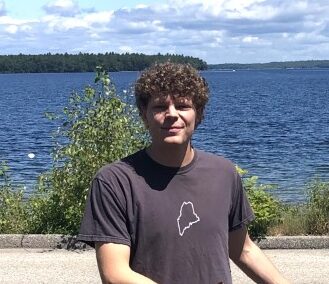
As I ease into the final week of my internship with Southern Maine Conservation Collaborative and Maine Environmental Education Association, I can’t help but reflect on the wealth of experiences I’ve gained while surrounded by such welcoming, caring, and encouraging folks. One of which has been contributing to the OUTLOOK story series. OUTLOOK explores variables that shape and influence individuals’ relationships with nature and how they seek to inspire, adapt and reimagine what conservation can look like moving forward in a world where Climate Change is affecting a broad range of human and natural systems. Through this experience, I was fortunate enough to spend time with several folks, each with their own unique relationships with climate change, but all invariably affected by its ever-growing impacts. To illustrate these differences and similarities, as well as to bring some closure to my time here, I figured it might be fun to incorporate a couple of my interviewees perspectives into one post. Enjoy 🙂
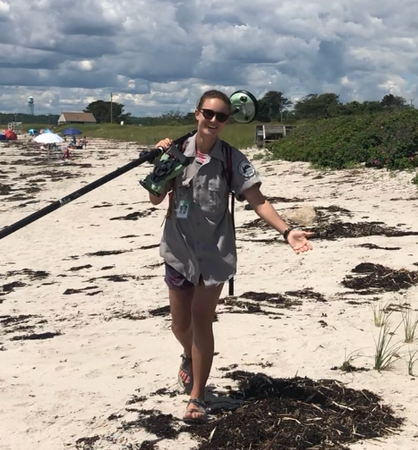
For Natalie Meenan, climate change manifests as an everyday lived reality that she’s reminded of through her time in the natural world. As someone who grew up leading kayaking tours on the San Juan Islands in Washington, and is most recently involved in on-the-ground beach surveying with the Maine Geological Survey, she’s almost always outdoors. It’s her tangible contact with things like beach erosion, sea level rise, and encroaching invasive species that characterize her associations with climate change as something visible and unwaveringly present. For her, this may stir up an “existential dread of what else climate change has in store for the world,” but it also serves as an ever-present driver in her environmental work, and the motivational building block to play her role in fighting climate change.
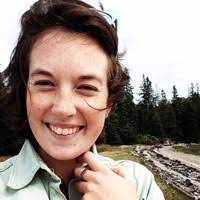
Margaret Gerber, the seasoned Director of Stewardship at the Brunswick-Topsham Land Trust, shares a very similar relationship to climate change as Natalie. She noted the importance of having face-to-face contact with the beauty of the natural world, as well as exposure to how climate change is shifting the development and inner workings of our environments. When she was fortunate enough to visit ice sheets in Greenland as a college student, she developed a “powerfully visceral connection” to natural spaces, a feeling noticeably akin to Natalie’s. Yet she maintains her own unique approach to tackling climate change through the land trust model, working to protect land in perpetuity to provide recreational and educational opportunities for anyone to learn about climate change.
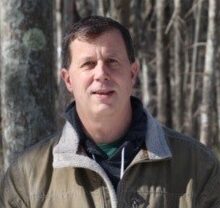
When speaking with Bill Stauffer, Vice President of the Oceanside Conservation Trust of Casco Bay, it was clear that his connection to climate change was deeply personal. Living year-round on an island, he is surrounded by the impacts of sea level rise, erosion, and increased storm events. As he noted in our interview, “We have witnessed intensified storm surges that erode the banks more every year.” His work with OCT thus also becomes rather personal, where he emphasizes the importance of preserving island properties for future generations of wildlife, as well as for their unique importance to climate change research.
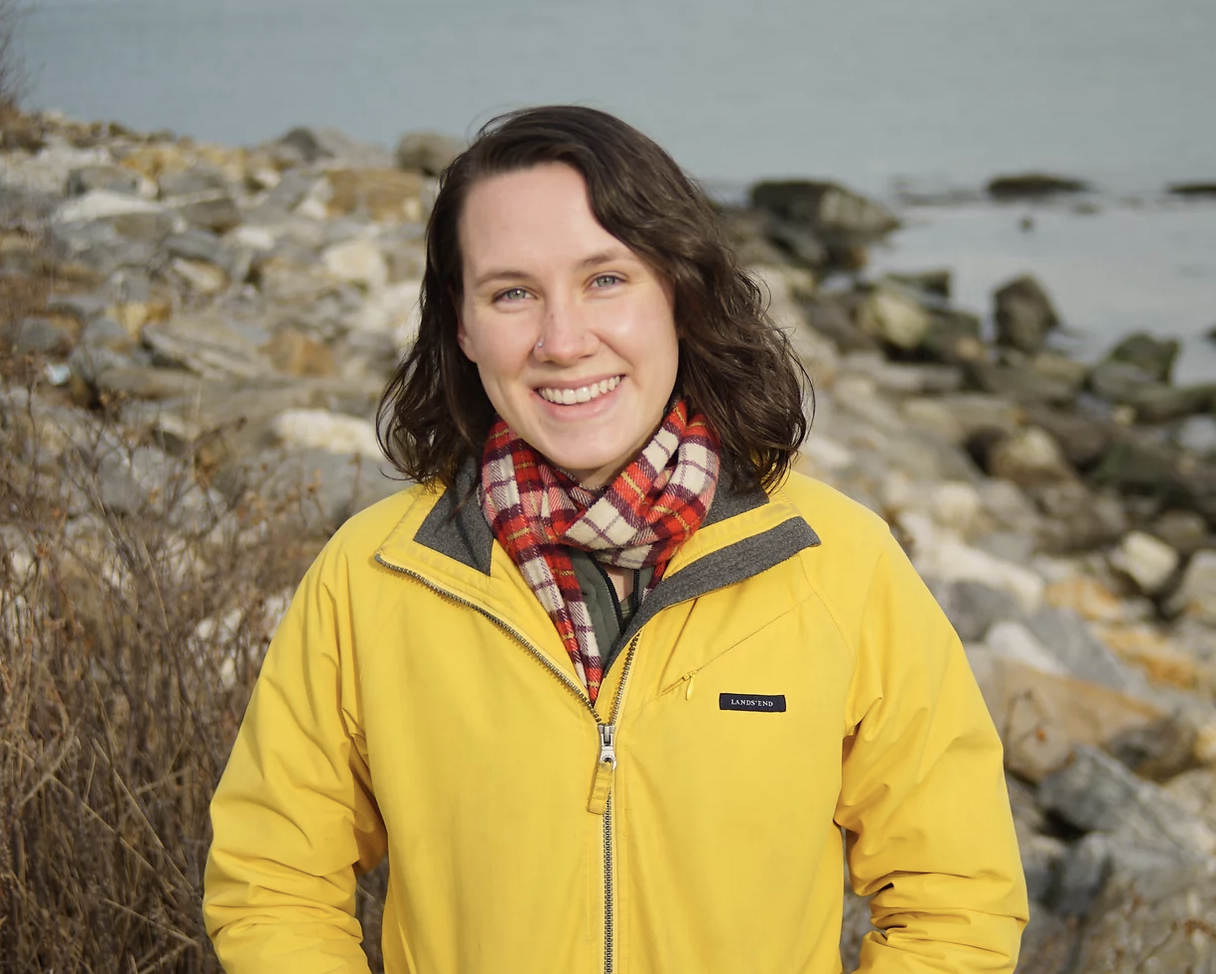 Madeline Tripp, Environmental Resilience Fellow with the Greater Portland Council of Governments, is on the other end of the research that Bill wishes to facilitate. As the developer of the Community Intertidal Data Portal, Madeline committed herself to pooling research data, particularly shellfish data from the intertidal zone, into formats that are more easily accessible to everyday users. It’s through this work that Madeline plays her own role in confronting climate change. She mentioned in our talk that tackling climate change must be rooted in collaborative processes, “We need to stress the importance of sharing information and resources between Maine communities.”
Madeline Tripp, Environmental Resilience Fellow with the Greater Portland Council of Governments, is on the other end of the research that Bill wishes to facilitate. As the developer of the Community Intertidal Data Portal, Madeline committed herself to pooling research data, particularly shellfish data from the intertidal zone, into formats that are more easily accessible to everyday users. It’s through this work that Madeline plays her own role in confronting climate change. She mentioned in our talk that tackling climate change must be rooted in collaborative processes, “We need to stress the importance of sharing information and resources between Maine communities.”
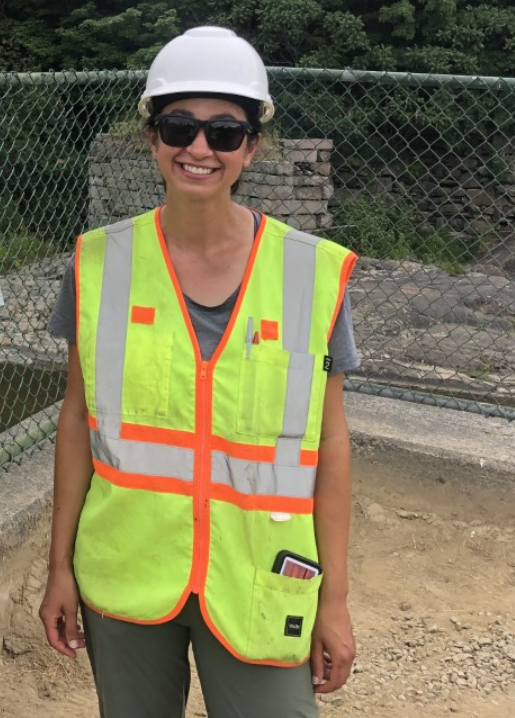
My final interviewee, Maranda Nemeth, similarly noted the importance of organizational cooperation as a key factor in the fight against climate change. Her work as the Project Manager overseeing the removal of Walton’s Mill Dam with the Atlantic Salmon Federation depends enormously on the contributions of the project’s partners. Removing a 300 foot dam to open up nearly 53 miles of habitat to the endangered Atlantic salmon can’t be done alone! She also shed light on the significance of rewilding what were once manufactured spaces in our path to fight climate change. The dam removal project is a perfect example, and one she understandably prides herself in being a part of.
My hope is that my conversation takeaways above highlight the interesting dynamics at play with climate change. We are all affected by it, and may share similar ways of tackling or confronting environmental hazards, but as a consequence of our backgrounds, interests, and professions we may process and feel the impacts of climate change very differently. We may react differently. And we may think differently. Yet, threaded into all of my conversations was the undergirding motivation to act together.
This story series resurfaced some of my own feelings of hope for the future by providing glimpses into the lives of people working extremely hard to protect the world around them. I’ve learned that there is value in providing spaces for people to share their perspectives. Even if it may be through a small story series like OUTLOOK, these spaces foster safe environments for people to teach, motivate, and learn. As a young person, I am fully aware that other young folks may not always have these opportunities for their voices to be amplified, making pieces of this project that much more meaningful to me. Similar to the development of Madeline Tripp’s Community Intertidal Data Portal, I hope to see the OUTLOOK series grow larger into a repository of change-making ideas to be shared and scaled across communities. Then, maybe these ideas will translate to on-the-ground work done by people like Natalie, Margaret, and Maranda. Or maybe they’ll inspire work to protect and preserve island properties as Bill does. Regardless of the outcome, these ideas should be shared, and I couldn’t be happier to have facilitated people in sharing their own stories. Hopefully, you feel inspired to do the same!
